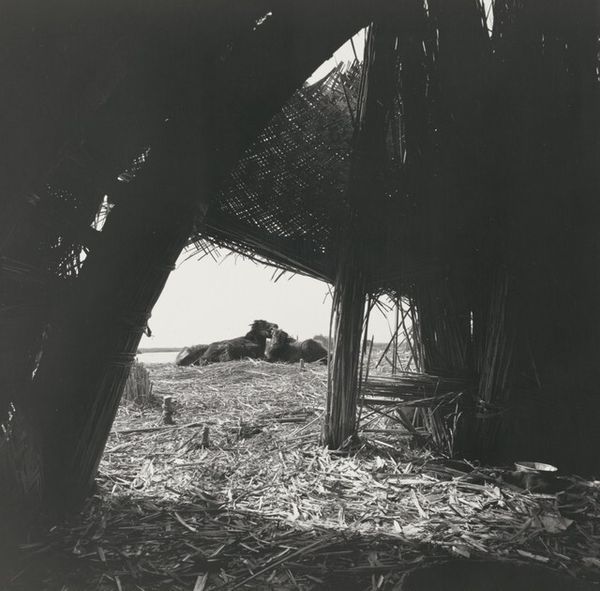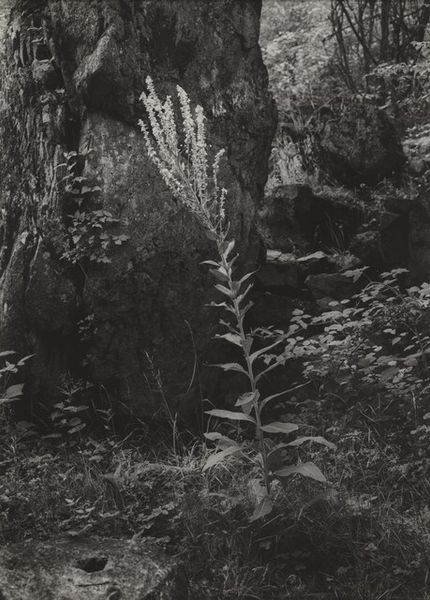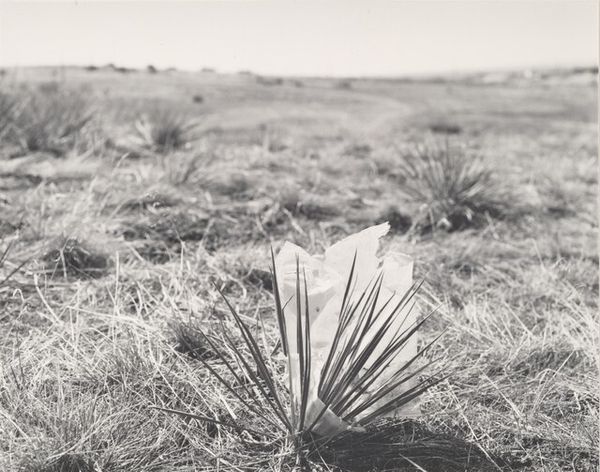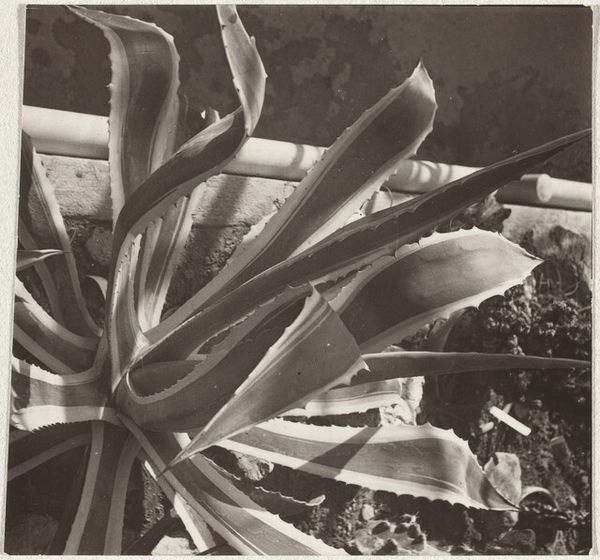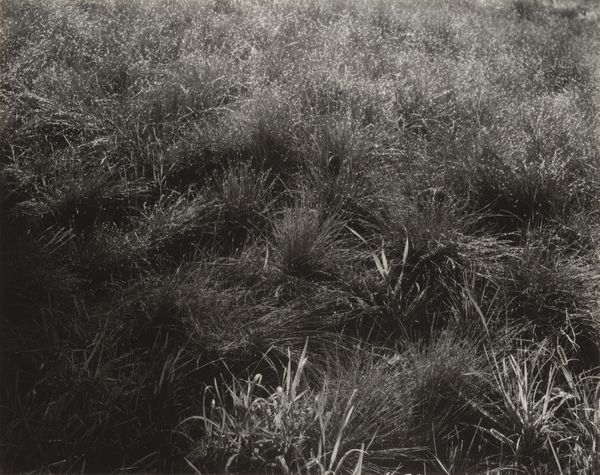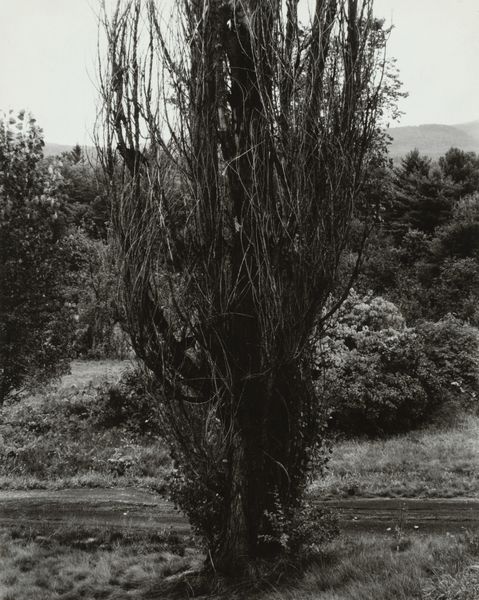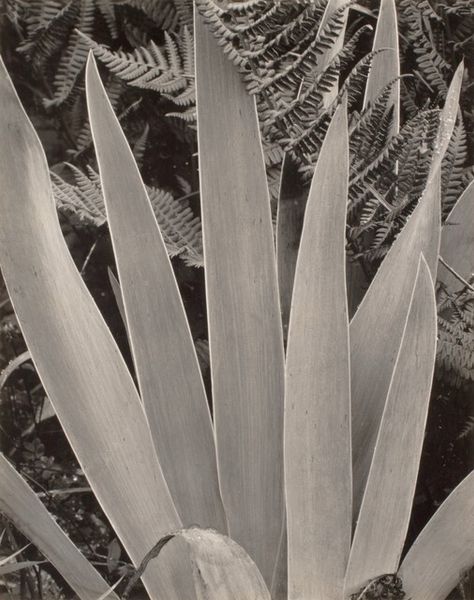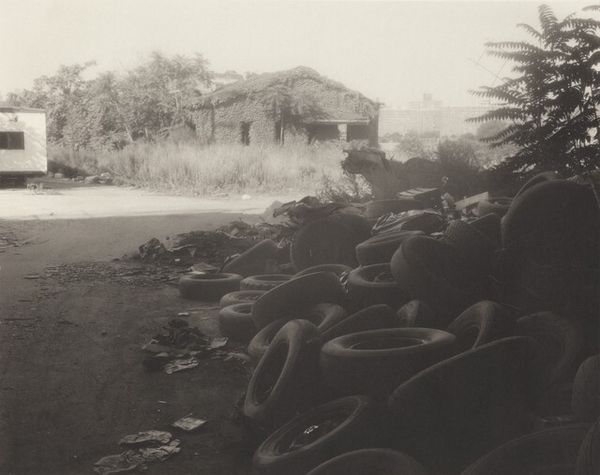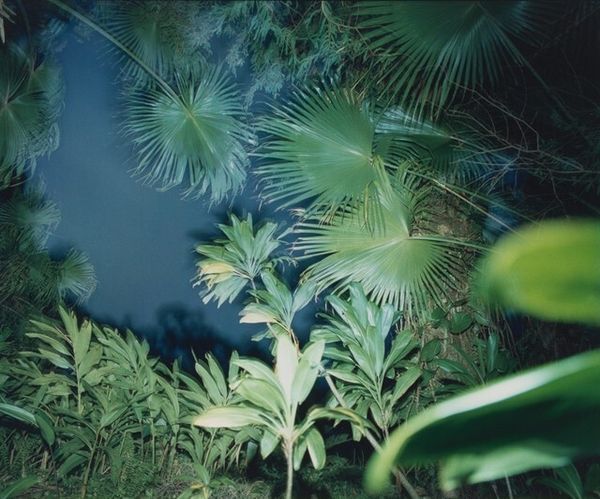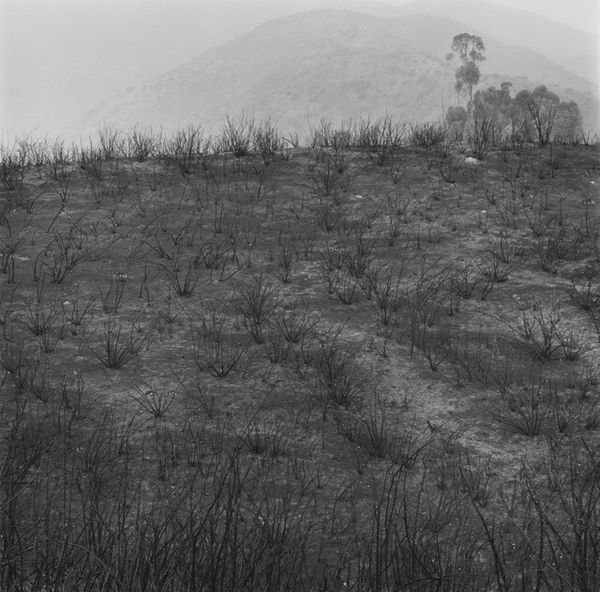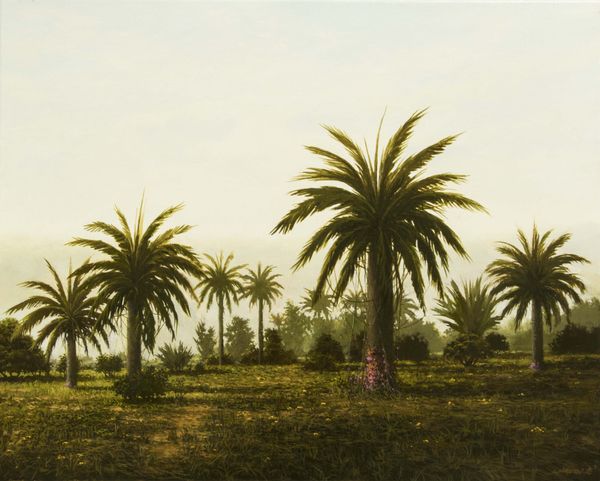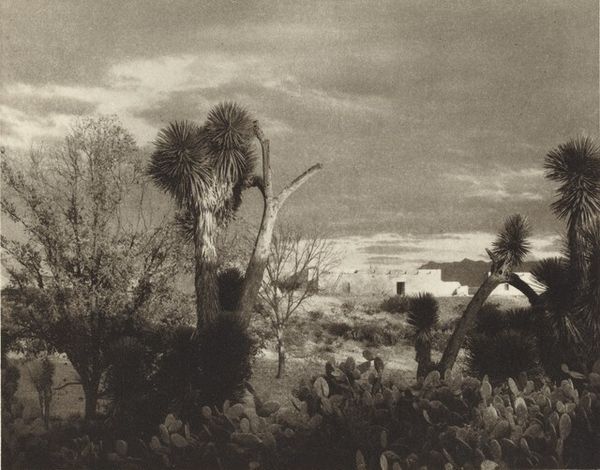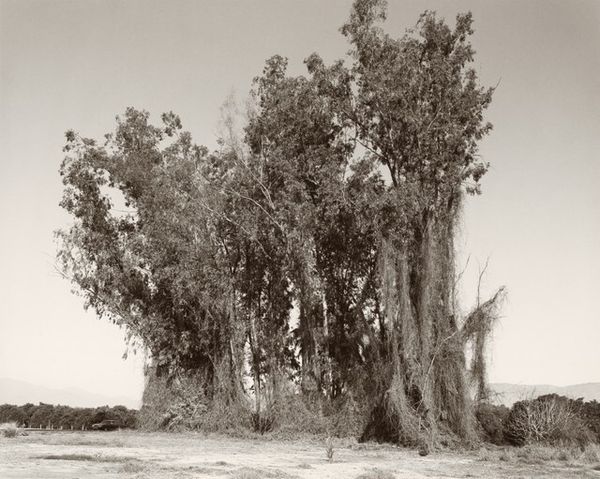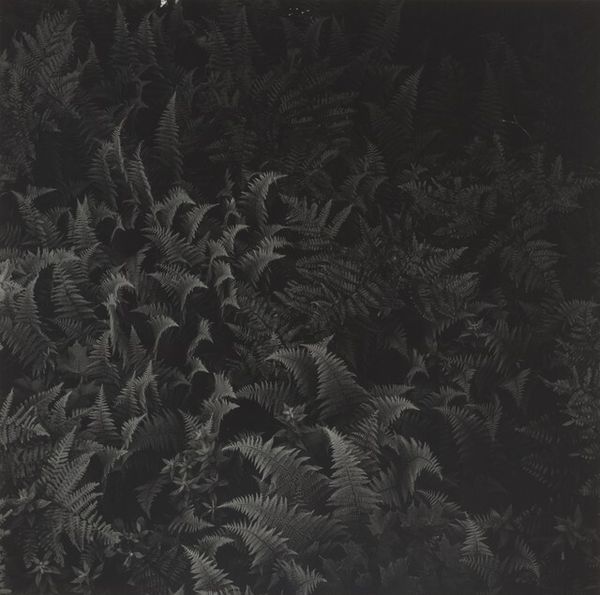
photography
#
black and white photography
#
landscape
#
photography
#
black and white
#
monochrome photography
#
monochrome
#
monochrome
Dimensions: image: 35.56 × 35.56 cm (14 × 14 in.) sheet: 49.85 × 39.8 cm (19 5/8 × 15 11/16 in.)
Copyright: National Gallery of Art: CC0 1.0
Curator: In Joan Fontcuberta’s 1984 photograph, "Costa Llobera Garden, Montjuic, Barcelona," we are presented with a striking landscape. What is your initial take on this black and white image? Editor: My first thought is how strangely melancholic it is. Those drooping plants, almost like figures bowed in grief. The monochrome palette definitely amplifies that somber mood, a stark contrast between the heavy plants and the blurred, industrial horizon. Curator: The choice to render this garden in monochrome certainly directs our reading, doesn't it? The play of light and shadow highlights the texture of the arid landscape, but I think there’s also a political element here. We're seeing this space, not as some postcard-perfect vista, but rather in a state of, dare I say, exhaustion, maybe even reflecting the political climate of the time. Editor: Exactly! Placing this image within its sociopolitical context is key. Post-Franco Spain was navigating significant transitions and, looking at these drooping plants against the backdrop of cranes and construction, there is a sense of a struggle between the organic and the imposed, between nature and industrial development. It raises questions about land use, about whose stories get told and whose are suppressed in these transformations. Curator: I think there’s also a subtle nod to traditional landscape photography being disrupted here, or being viewed through a lens of self-awareness. There’s a sort of defiance, it makes you consider not only the beauty of the scene, but also what beauty *isn’t* - what’s wilting away or fading out of view. Editor: That disruption you mention is significant. It resists the romantic ideal of landscape and instead confronts viewers with a garden that appears burdened, almost as if under the weight of external pressures. The textures pop, especially given the plants almost look alien in such a well documented landscape! It is really more than a snapshot, a call to awareness about the social realities underpinning the scenes we often idealize. Curator: The artist's keen awareness and our own assumptions, that all makes sense. What a powerful garden to capture the attention, making us ask all these questions about our role in constructing perceptions around an image. Editor: Exactly, seeing this piece with you made it so alive for me.
Comments
No comments
Be the first to comment and join the conversation on the ultimate creative platform.
